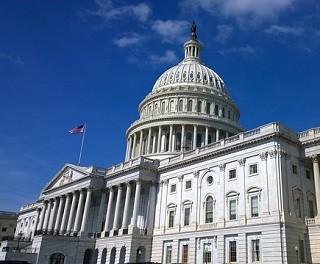
The House of Representatives is currently considering the Dignity Act of 2023, a bill designed to modernize the immigration system in the United States. The passing of the Act would significantly impact the talent mobility strategy of many US companies and address some of the barriers to employee relocation.
Currently, it can be challenging for workers from other countries to come to the US for employment and difficult for companies to sponsor them. Couple that with limited visas, and it becomes complicated for companies with a talent mobility strategy and workers to come together.
Why the Dignity Act is Important for Employers
It’s no secret that the US labor market is tight, making it more difficult for American employers to hire the people they need. Ideally, they could find candidates in other countries and help them immigrate to the US for work. Unfortunately, there aren’t enough visas to go around, and the requirements for immigration make it hard for workers from other countries to live and work in the US.
That’s leading to US companies outsourcing jobs to people in other countries through remote options. Meanwhile, workers from other countries who might want to live and work in the US are selecting countries with fewer immigration hurdles and more STEM-based jobs. Canada, in particular, has liberalized its immigration process and is actively recruiting immigrants who might otherwise come to the US.
Nearly 95% of companies would sponsor work visas for foreign nationals if the immigration obstacles didn’t loom so large. However, current immigration laws make it easier for companies to outsource jobs to other countries while encouraging foreign talent to look elsewhere outside the United States.
Considerable hurdles remain. There were 85,000 HB-1 visas available in 2022 and 483,927 applications. The Dignity Act includes a plan to correct that issue and many others that currently plague the US immigration system and make American businesses less competitive.
Proposed Changes to US Employment-Based Immigration
The Dignity Act is a bipartisan effort focused on broad changes to the immigration system in the US. Some of the most significant and most notable changes in the Act include:
- Automatically granting visas to the spouses of employees who receive their work visas to come to the United States.
- Increasing the green-card cap per country to 15% from its current 7%.
- Prioritizing the queue for immigrant visas to help reduce the backlog in that area.
- Excluding spouses and children from being counted in visa caps for employment-based visas.
Notably, the bill would permit US-based Ph.D. students with a STEM focus to remain in the US and work after graduation and also issue student visas with dual intent (study and work). Today, these new Ph.D.s are often forced to return to their home country or elsewhere after completing their studies.
Another notable change will be protecting the children of visa holders, who often age out of eligibility due to delays in processing through US Citizenship and Immigration Services (USCIS). These children should be allowed to remain until they can move through the processing of their applications, but that hasn’t been the case.
These are material changes that will require significant adjustments to the immigration system. To help facilitate these changes, the Act also establishes a new role, Immigration Agency Coordinator. The Coordinator will oversee immigration-based functions at several agencies, including the Department of Labor, Department of State, and USCIS. These agencies would also receive additional funding to improve the visa adjudication process, work through the current backlog and reduce delays.
The Dignity Act Bottom Line
The current US immigration system has become increasingly dysfunctional, constraining businesses’ talent mobility strategies and making it difficult or impossible for qualified professionals to live and work in the US.
According to Jerry Funaro, the VP of Global Marketing at TRC Global Mobility, “America’s continued growth depends on a frictionless immigration system that allows employers to attract, retain and deploy talent worldwide. We concur with Worldwide ERC in supporting the bipartisan Dignity Act, which would modernize America’s immigration system and remove some of the impediments in the current system.”
The US immigration system has changed little in generations, while the needs of US companies and workers have changed significantly. By modernizing this system, the Dignity Act will benefit American companies and each’s talent mobility strategy, workers and the country itself.




